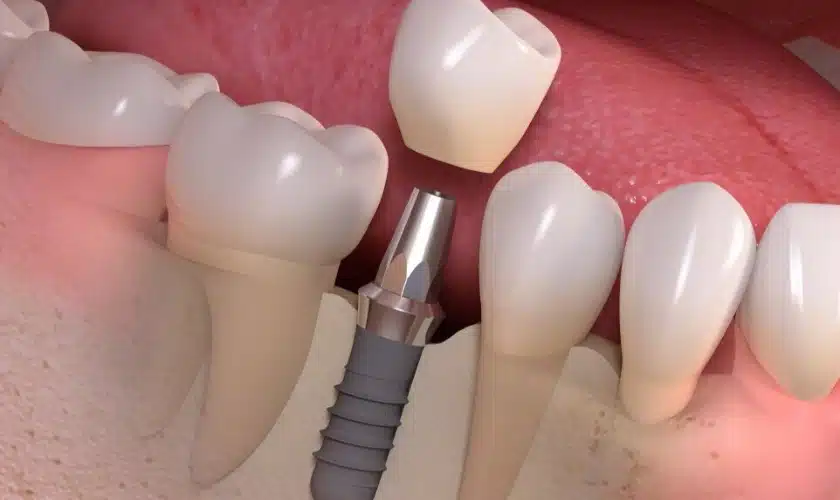 Any general dentist knows that oral health is about more than just strong teeth. It is also a bellwether of overall physical health, which makes maintaining healthy teeth and gums a crucial part of any wellness routine. Showing up for cleanings twice a year is not enough to keep teeth and gums healthy. Patients should always take time to ask questions at the dentist, being sure to address any concerns or uncertainties they may have.
Any general dentist knows that oral health is about more than just strong teeth. It is also a bellwether of overall physical health, which makes maintaining healthy teeth and gums a crucial part of any wellness routine. Showing up for cleanings twice a year is not enough to keep teeth and gums healthy. Patients should always take time to ask questions at the dentist, being sure to address any concerns or uncertainties they may have.
5 things patients can do to maintain good oral health
While patients should follow the advice of a general dentist for routine care and cleaning, these five steps can help keep teeth clean and strong between appointments.
1. Learn proper brushing techniques
Most people know that brushing at least twice each day is essential for keeping teeth clean and healthy. However, people are not born knowing how to brush their teeth; it is an acquired skill that many patients never learn to perform correctly. Brushing should be done gently with a soft-bristled toothbrush. Anything too harsh can cause irritation and damage to enamel surfaces that protect against decay. Using an electric toothbrush or one with special pressure indicators can make this easier to accomplish.
2. Floss between teeth every day
There is a reason that a small package of dental floss is in the bag patients get at the general dentist. When used regularly, floss removes food particles from between teeth and reduces plaque buildup. The result is cleaner teeth, fewer cavities, and healthier gums. The ideal time to floss is right before brushing, but it is better to do it at any time than not at all. Each piece of floss should be gently pushed into the area between the teeth, then carefully curved around the base of each tooth. A clean section should be used for each space.
3. Use fluoride treatments to strengthen tooth enamel
Fluoride helps strengthen tooth enamel, which protects against cavities. Many public water supplies have fluoride added to encourage healthier teeth, but filtered and bottled water may not contain it in sufficient quantities to work effectively. Many kinds of toothpaste and mouthwashes use fluoride, which is a simple way to ensure adequate levels. Otherwise, patients can talk to their dentist about having professional fluoride treatment applied to tooth surfaces after cleanings.
4. Limit sugary drinks and alcohol
Drinks loaded with sugar promote the formation of dental cavities. Sodas and alcohol are particularly dangerous because of high phosphorous content that can deplete calcium and lead to weakened teeth and bones.
5. Avoid smoking cigarettes or using tobacco products
Tobacco is detrimental to overall oral health. In addition to being linked to higher rates of oral cancers, it stains teeth and contributes to dry mouth conditions that encourage bacterial growth. Avoid tobacco products to promote oral health.
Conclusion
With regular cleanings at a general dentist and proper home care, oral health can be maintained. Talk to your dentist about any questions and be sure to follow the advice and recommendations made based on the current condition of your teeth and gums.
Request an appointment or call Canton-Plymouth Family Dentistry at 734-981-8040 for an appointment in our Canton office.
Recent Posts
Regular dental cleanings are an essential part of maintaining good oral health, but when it comes to fluoride treatments, some patients may question their necessity. However, fluoride cleanings offer significant benefits that contribute to overall oral health and cavity prevention. In this blog post, we'll explore why you shouldn't skip your regular fluoride cleanings and…
A general dentist is responsible for providing routine oral care to patients of all ages. Routine oral care typically involves cleanings, examinations, fluoride application, and x-rays. X-rays are typically the easiest part of routine oral care, however, they can often get skipped or overlooked. Keep reading to find out why a general dentist recommends getting…
Patients may be alarmed if a general dentist mentions that a tooth extraction may be needed during a routine appointment. A dentist’s primary goal is to preserve the teeth, but there some cases where a tooth cannot be saved using normal procedures. Understanding what situations can result in tooth removal and knowing the options available…


